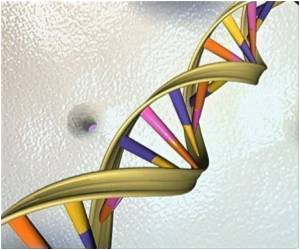
Two studies appearing in the journal Genes and Development analysed the role of a protein called PUMA, which triggers cell death in response to damaged DNA. PUMA is activated by tumour-suppressor protein p53, also called 'the guardian of the genome'.
More than half of all human tumours carry mutations in p53. Mice that lack p53 are riddled with cancer, and typically succumb to the disease within three months.
"You can read it in any textbook. The death of cells that have undergone DNA damage is critical to cancer prevention," Nature quoted Andreas Villunger, a molecular biologist at Innsbruck Medical University in Austria and a co-author of one of the papers, as saying.
Without PUMA, p53 can't flip the cell-suicide switch. With this in mind, Villunger and his colleagues generated mice that lack the PUMA protein and then subjected those mice to DNA-damaging radiation. The researchers expected the animals to quickly develop cancer and die.
But to their surprise, mice that lacked PUMA fared better than normal laboratory mice.
Advertisement
A separate research team headed by Andreas Strasser of the Walter and Eliza Hall Institute of Medical Research in Melbourne, Australia, observed the same phenomenon: the absence of the suicide switch had protected the mice, not harmed them.
Advertisement
Source-ANI














